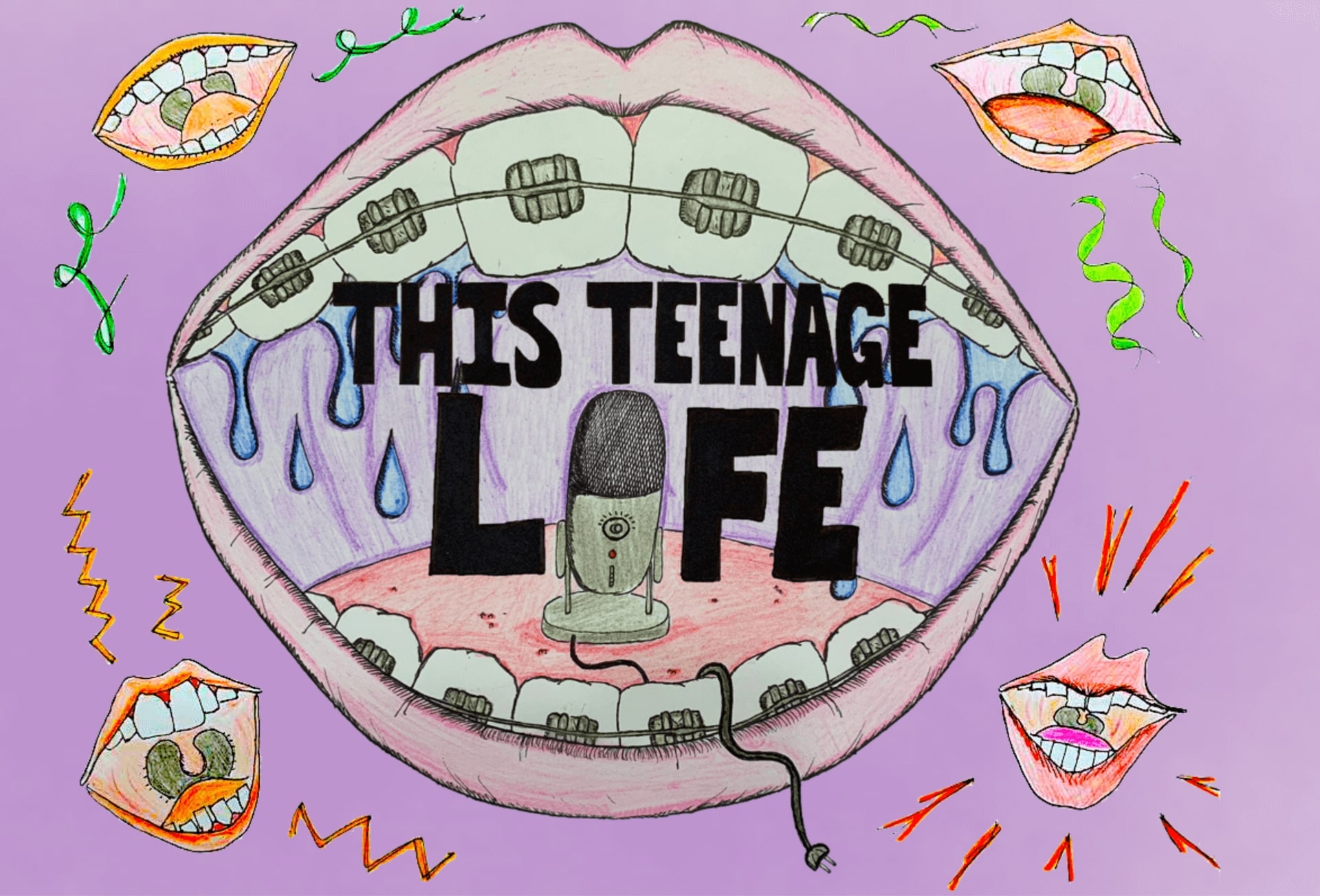LISTEN: Teen Tips for Teachers
Teachers understand that youth voice and choice are critical for learning. At XQ, we’ve made it…

Teachers understand that youth voice and choice are critical for learning. At XQ, we’ve made it one of our defining principles to support educators. This week we’re spotlighting a podcast that can give you more insight into empowering the minds of young adults.
This Teenage Life (TTL) started in 2018 as a project between students at High Tech High in San Diego, CA and educator Molly Josephs, a biology and computer science teacher. “A group of teens and I would meet once or twice a week and sit in a circle around a microphone, talk about issues relevant to their lives,” Josephs described. Gradually, what started as an afterschool club grew into an international youth dialogue and podcasting program.

“Our show is now heard by hundreds of thousands of teen and pre-teen listeners around the globe who often email us and share how the show helps them realize that they’re not alone,” said Josephs. She now teaches in New York City and produces about two episodes a month of TTL with about 30 contributing students from all over the U.S. and the world. XQ sponsored several episodes this year.
To kick off the school year, we asked Josephs to select episodes that highlight five themes currently important to students. Josephs hopes they’ll help educators as they strive to support their students’ own voices.
Further, we believe that by engaging with any of the podcasts episodes, educators can learn from students directly about the best ways to construct a learning environment that empowers young people through a myriad of ways. Each episode is available on TTL’s website as well as on Spotify, Apple Podcasts, and wherever podcasts are found.
In the episode “Feeling Seen By Teachers,” a teacher and two students reflect on how educators can help students feel like educators view them as whole people.
Josephs recommends this episode for teachers because “it can be easy to prioritize content and lesson plans over small moments and conversations where students feel acknowledged as individuals.” But she said getting those small moments right has to come “from a place of real love and understanding and empathy.”
This episode also touches on another XQ design principle: caring, trusting relationships.
Educators are especially aware of the impacts mental health issues can have on our students, especially in the wake of COVID-19. For this, Josephs recommends three episodes where students share their personal experiences, touching on the resources that offer support: “A Year in Quarantine,” “Pandemic Isolation & Depression,” and “Therapy.”
“Educators are often painfully aware of the ways in which adolescents—especially those who identify as girls—experience disproportionately high rates of anxiety, depression, eating disorders, and feelings of isolation,” Josephs explained.
Menstruation impacts the daily experience of about half of high schoolers, and yet it’s not a topic that’s commonly talked about in school. In “No Shame, Period,” students discuss the realities of menstruation with honesty, curiosity, and humor.
Josephs said that ignoring topics around students’ embodied experiences only stigmatizes them. “If we’re not aware, then how can we create a school environment that helps all young people feel nourished and comfortable in their bodies?” Josephs connected this question to equity, and to “thinking about how to create systems and accommodations for all people that allow them to feel comfortable.”
In “Hair Reflections,” a Black student and her mother reflect on the connections between hair, race, and culture. This episode showcases the power of their relationship, and how their shared experiences of hair shape who they are. It’s also the kind of story about a student’s home life that may not come up in a traditional classroom. Josephs explained, “There are so many cool things that are happening at home that kids have to check at the door.”
By inviting students to share experiences like the one in this episode, teachers can empower students to bring their knowledge from outside of school into the classroom. Josephs explained, “Giving young people the opportunity to share stories about their families, their ancestry, and their world is affirming—to students and to everybody.”
In “Thank You, Next: Overcoming Bullying, a teen shares their experience of being bullied in high school, and how they’re moving on. Josephs hopes this episode will help other students feel less alone, and help teachers support students in similar situations. “Bullying is so nuanced. It can be so subtle,” she said. “And yet it can have such a big impact on someone’s sense of self. Understanding how that can happen is really important in order to be a support.”
This episode also showcases the power of another XQ principle, meaningful, engaging learning, to help students process difficult experiences. Josephs said it reveals the importance of emotionally relevant, creative, and intellectual work in helping someone develop in a way that will “increase their confidence, sense of self, self-efficacy, and ability to learn.”
XQ sponsored two other episodes of This Teenage Life in 2022 that we recommend for teachers, because they touch on high school.
Listen to Teens Discuss What Mattered Most to Them in High School Classes, in May.
How the Pandemic Changed Us: High Schoolers Share Their Perspectives, in June









